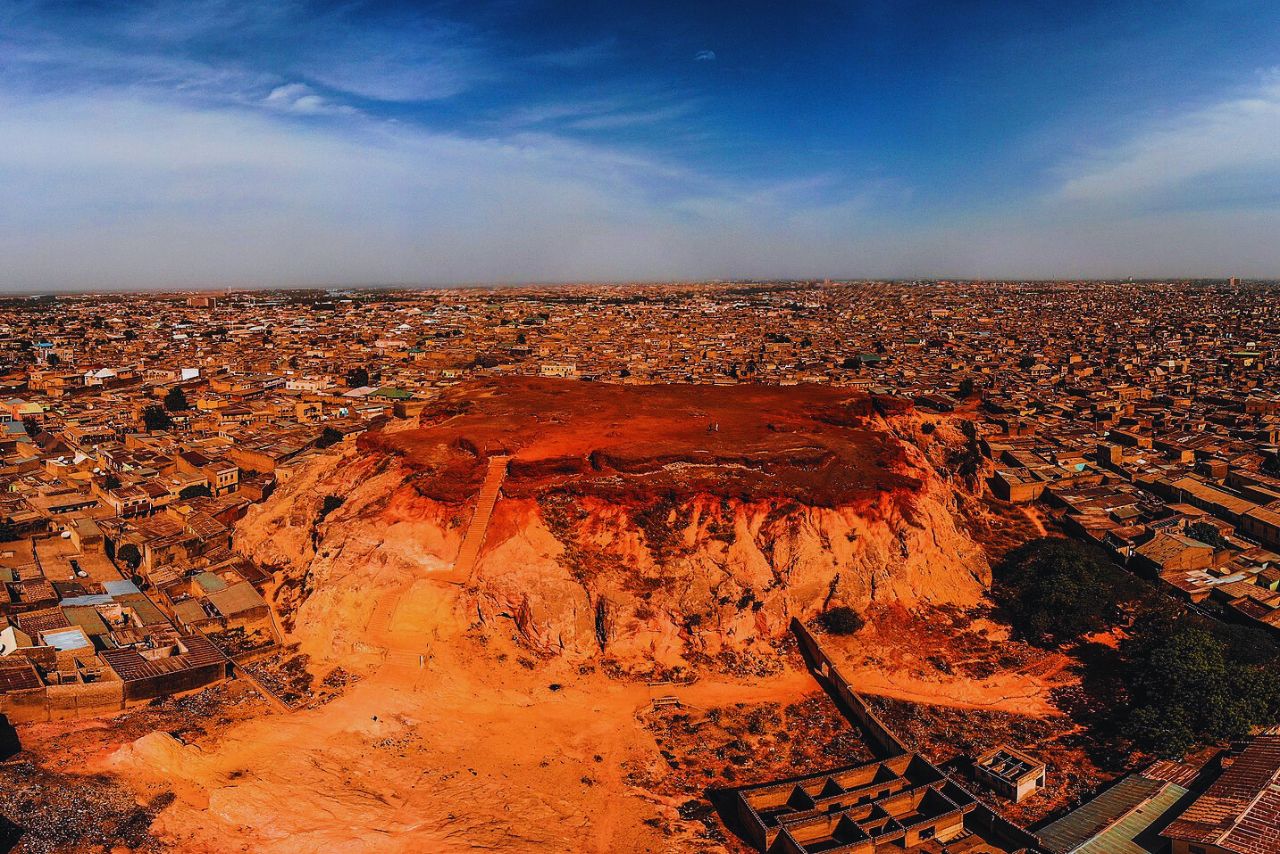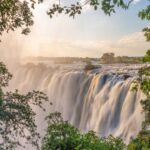There’s a certain kind of traveler who isn’t satisfied with picture-perfect resorts or predictable city breaks.
If that sounds like you, then it’s time to turn your compass northward, to a place where history breathes through the walls, colors dance in the markets, and traditions are lived, not displayed.
This is Northern Nigeria, the land of kings.
In Kano and Kaduna, you don’t just see the culture; you live it.
You get to walk through ancient gates that have stood for years, taste meals that carry generations of flavor, and witness festivals so grand they blur the line between past and present.
This isn’t luxury in the conventional sense; it’s luxury of experience, of connection, of discovery.
Northern Nigeria offers travelers something rare today: authenticity.
It’s affordable and raw, yes, in the African way. And once you go, you’ll wonder why it took you so long to get there.
Kano
Kano is the commercial heart of Northern Nigeria and a city of over a thousand years, where the scent of leather, indigo dye, and spices fills the air.
Once a major stop along the Trans-Saharan trade route, the city’s heritage is still visible in its mud-brick buildings and living traditions.
Stepping into Kano feels like stepping through the pages of an epic historical novel; each street tells tales of powerful emirs, skilled artisans, and tireless merchants.
For travelers seeking culture on a budget, Kano is gold.
Ancient Walls and Timeless Streets
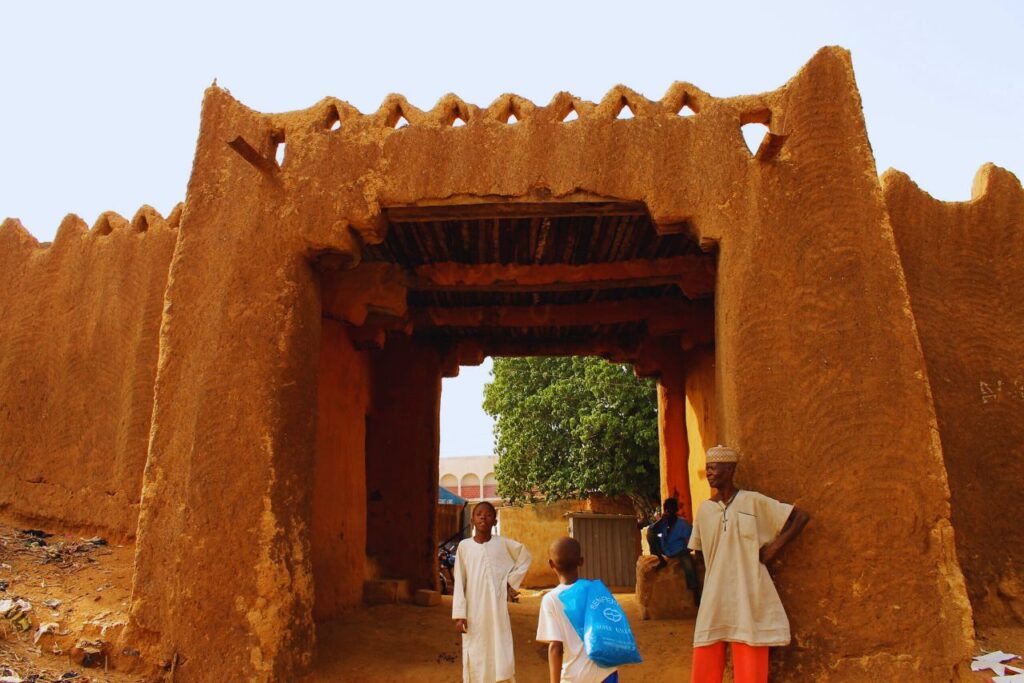
Photo source: Naija Biography
Kano is one of the oldest cities in West Africa, and it wears its history proudly.
The Ancient Kano City Walls, built between the 12th and 14th centuries, once protected this thriving Hausa kingdom.
Today, walking along these clay fortifications feels like travelling back through time.
Within the old city, every gate tells a story, especially Kofar Mata and Kofar Nassarawa, where traders and travelers have passed for centuries.
Locals will gladly share bits of history if you ask politely, and their hospitality makes the experience even richer.
Kurmi Market
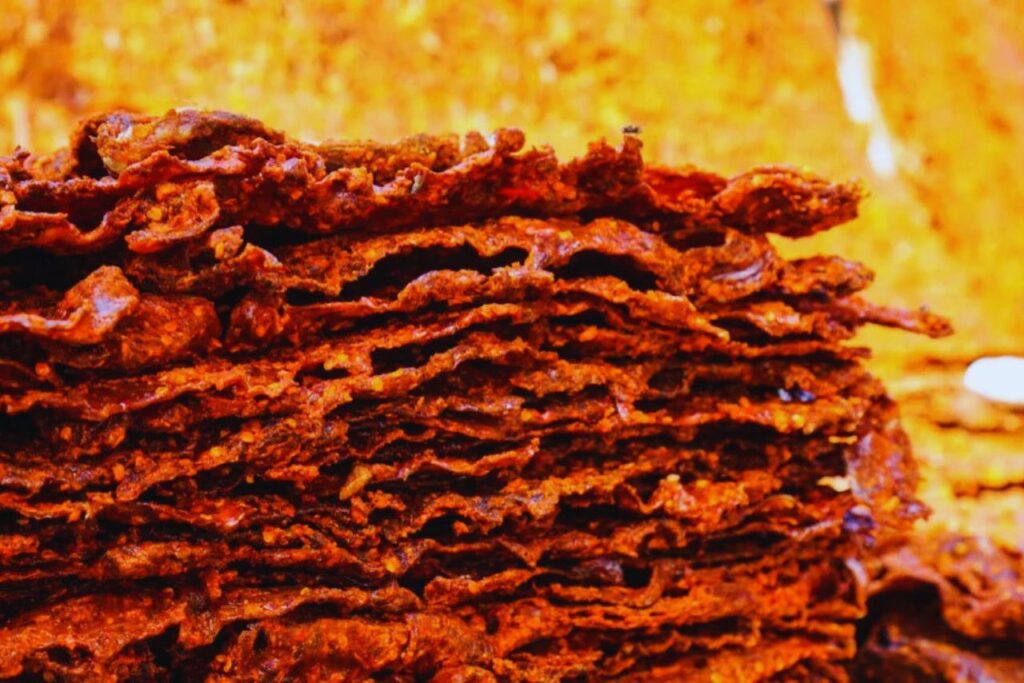
Photo source: bariboost
I love me some shopping!
Once inside the city, your senses awaken at Kurmi Market, one of Africa’s oldest trading hubs.
Stalls overflow with leather crafts, hand-dyed fabrics, spices, and jewelry. The air smells of shea butter, roasted nuts, and incense.
Prices are fair, and haggling is part of the fun.
If you’re after souvenirs, buy locally made leather sandals or colorful woven caps.
And when hunger strikes, grab a plate of tuwo shinkafa with groundnut soup, or snack on kilishi, Kano’s spicy, sun-dried meat that rivals any beef jerky in the world.
Dala Hill at Sunset
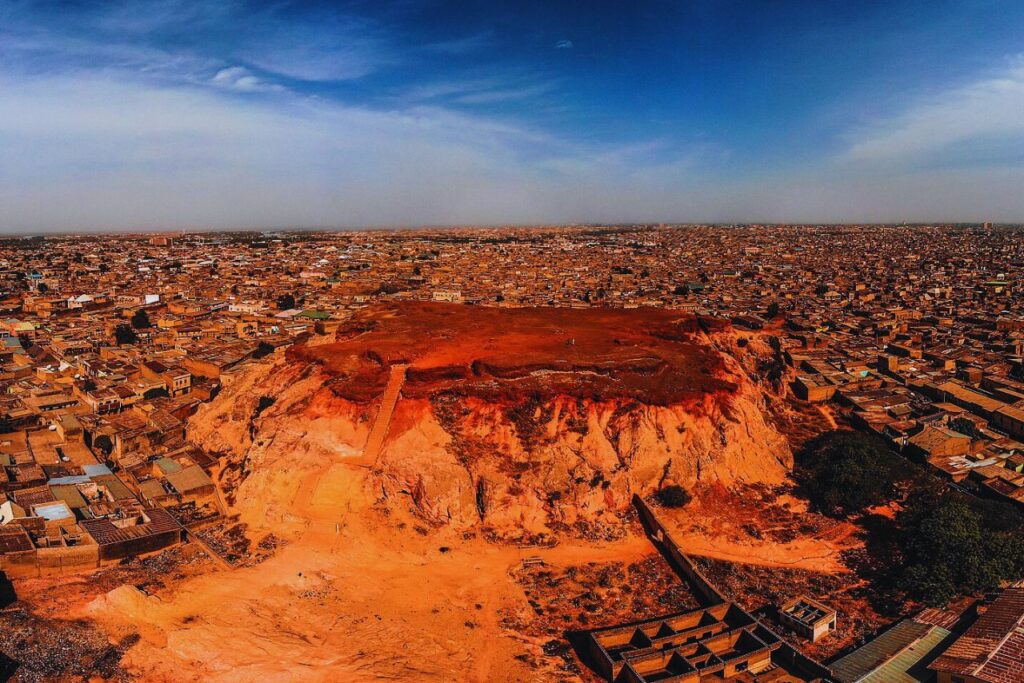
Photo source: dalahill
For the best view in town, climb Dala Hill, a sacred site that has watched over Kano for centuries.
The climb is short but rewarding.
From the top, you’ll see rooftops glowing red in the evening light, the city’s mosques shimmering in gold, and the gentle hum of life below.
Locals gather here in the evenings, chatting or taking photos. It’s a peaceful spot to breathe and reflect after a day of exploration.
Gidan Makama Museum
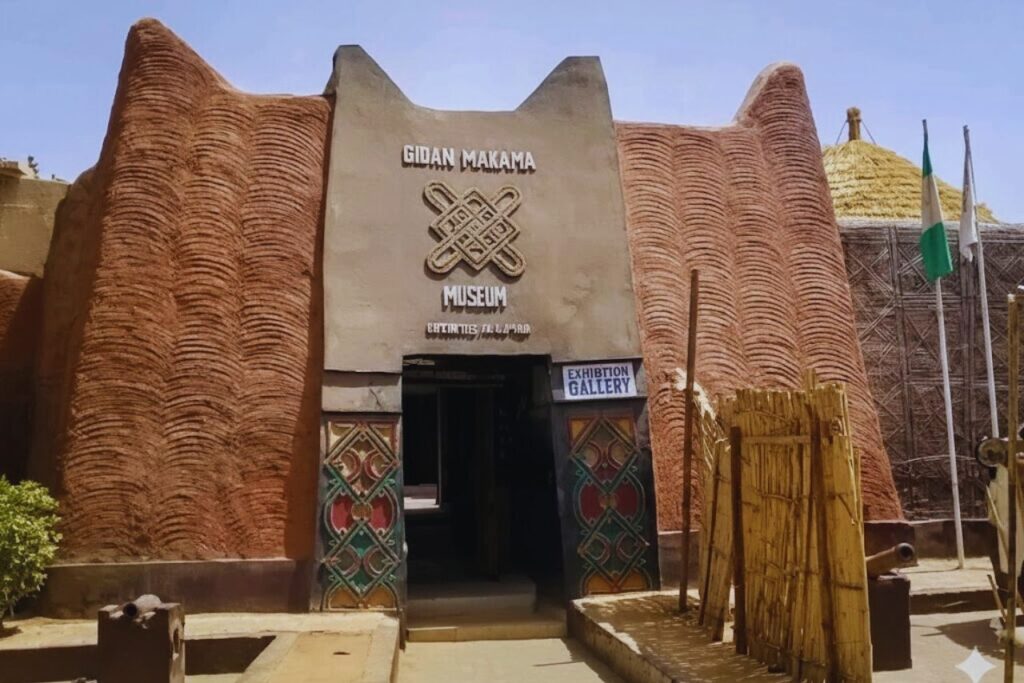
Photo source: tripadvisor
I love museums. They are the best way to look at the past, letting you walk right up to history and really understand it.
The Gidan Makama Museum is a 15th-century palace turned national monument.
It was once the residence of Kano’s early emirs, but now, it holds 11 galleries showcasing the region’s art, weaponry, textiles, and royal regalia.
Each room tells a different chapter of Kano’s evolution, from ancient civilizations to the rise of Hausa kingdoms.
When visiting, greet elders respectfully, ask permission before photographing people, and dress modestly.
The dry season (November–March) offers pleasant weather for exploring the city on foot.
Where to Stay and Eat
Kano is kind to travelers on all budgets.
Clean, comfortable hotels like Tahir Guest Palace or Bristol Palace Hotel offer great service for under ₦40,000 per night, while smaller guesthouses near the city center go for less.
For food, try Dala Restaurant for local fare, and if you crave something cool, the city’s juice spots serve fresh tiger nut, zobo, and pineapple drinks at pocket-friendly prices.
READ ALSO: First-Timer’s Guide to Detty December in Lagos: Nightlife, Safety & Tips
Kaduna
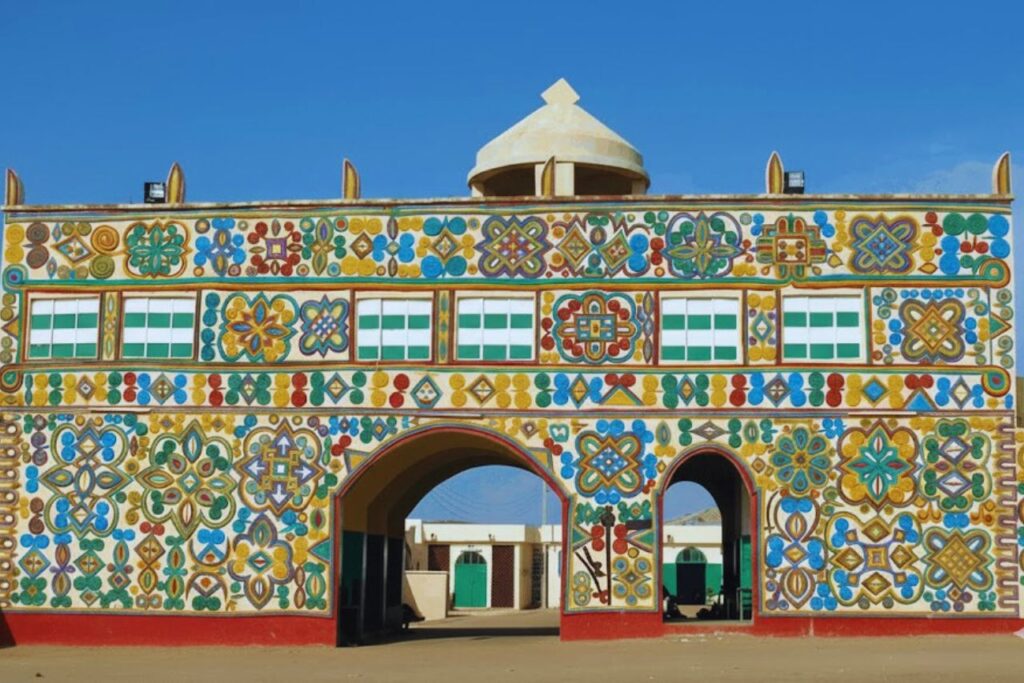
Just a few hours south of Kano lies Kaduna, the “City of Crocodiles.”
It was given this nickname because the city’s name is derived from the Hausa word for crocodiles, which were historically abundant in the Kaduna River.
Founded in the early 20th century by British colonial administrators, Kaduna is more modern and orderly than its northern cousin, but no less fascinating.
It’s a bridge between Nigeria’s past and present, offering everything from colonial architecture to vibrant modern art scenes.
Kaduna’s central location makes it the perfect base for day trips and weekend getaways.
Kajuru Castle
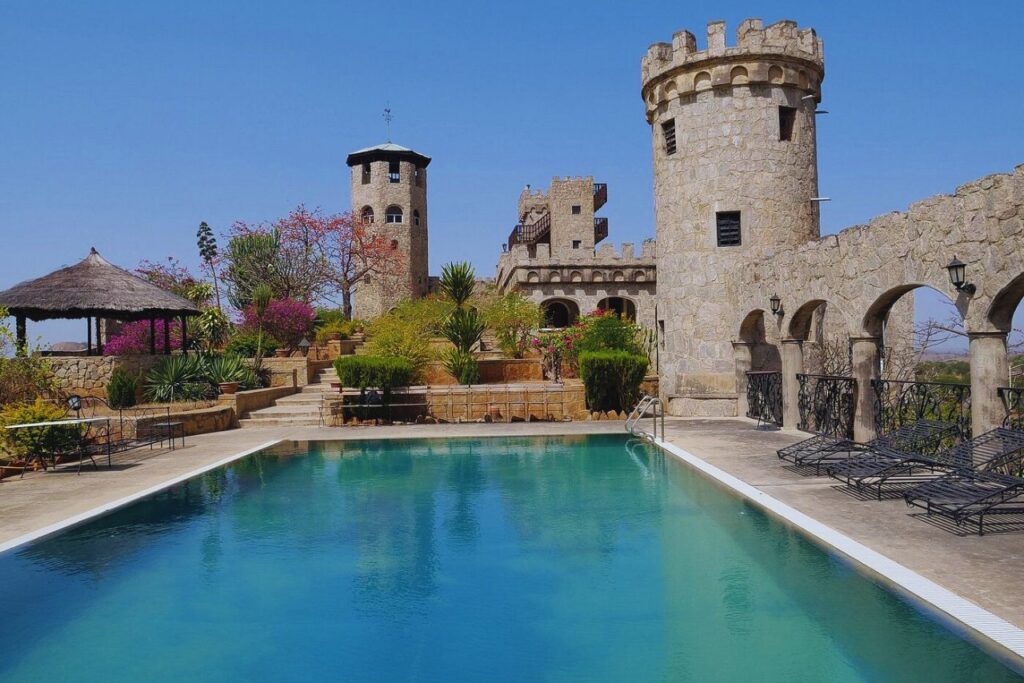
About an hour from the city, you’ll find Kajuru Castle, a German-style fortress perched on a hilltop.
Built in the late 1970s, it looks straight out of Bavaria, complete with turrets, dungeons, and panoramic views of the countryside.
Though more upscale, group tours or weekday visits can make it affordable. Bring your camera; the photos here are spectacular.
Back in town, stop by Arewa House, the former residence of Sir Ahmadu Bello, the Premier of Northern Nigeria.
Now a research center and museum, it offers a fascinating glimpse into Nigeria’s political and cultural heritage.
Kaduna’s Natural Wonders
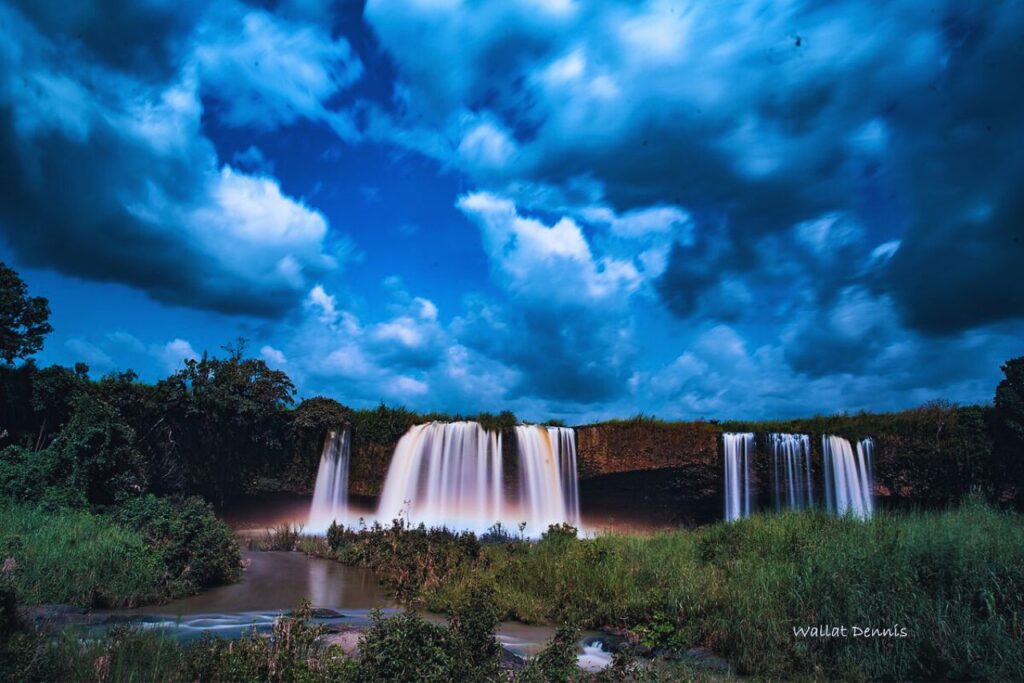
Photo source: Wikipedia
For a dose of nature, venture south to Matsirga Waterfalls near Kafanchan.
The falls plunge about 30 meters into a misty gorge surrounded by lush rock formations, a peaceful spot for picnics, photos, or quiet reflection.
Entry fees are minimal, and local guides are often happy to share stories about the area.
To experience Kaduna’s local life, hop on a Keke Napep (tricycle) or shared bus; both are safe and cheap.
Along the way, grab some Suya (grilled spicy meat) from roadside vendors, best enjoyed after sunset when the grills come alive.
The Royal Heritage of Zaria
For history lovers, Zaria is a must.
Once home to the famous Queen Amina, the warrior queen of Zazzau, Zaria’s Emir’s Palace still showcases magnificent traditional Hausa mud architecture.
The town’s layout, narrow streets, and market stalls offer a glimpse of life from centuries past.
Dress modestly, greet people warmly, and respect palace boundaries when visiting.
Zaria is a living museum of royal dignity and Hausa pride.
Local Dishes You Can’t Miss
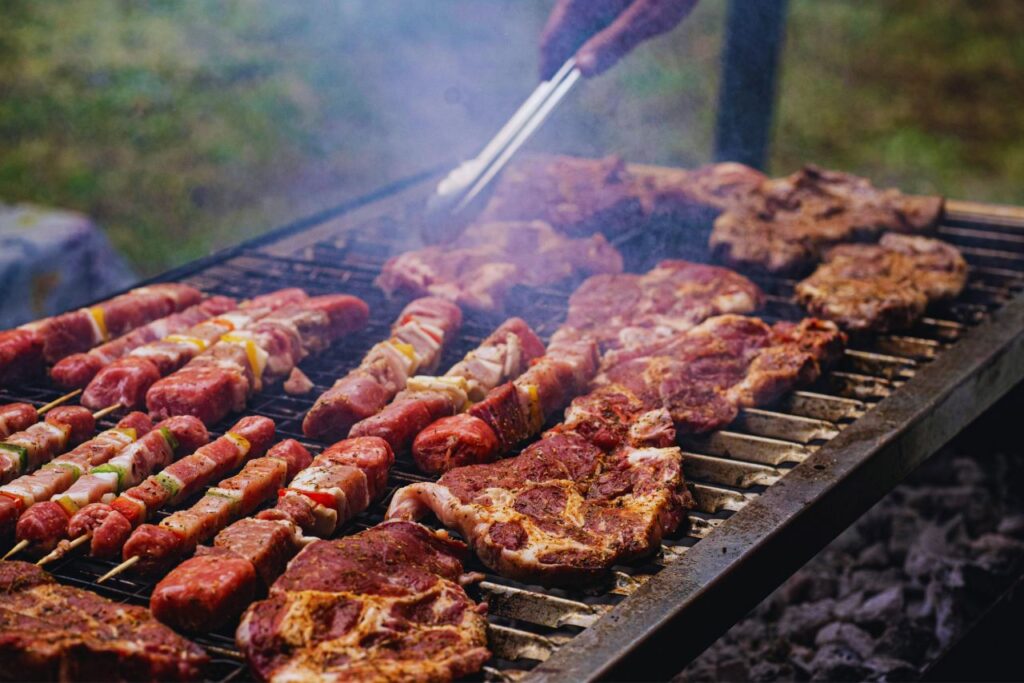
No visit to Kaduna is complete without sampling its street food.
Try Masa, soft rice cakes served with Miyan Taushe (pumpkin soup), or with sugar for a quick snack.
In the evenings, Suya vendors line the streets with sizzling skewers, affordable, smoky, and irresistible.
Staying in Kaduna
Accommodation options are wide-ranging.
Fifth Chukker Polo & Country Club offers luxury stays with a countryside feel, while Access Hotel and Regal Lodge provide comfort at reasonable prices.
READ ALSO: Where to go in Africa in 2026
Cultural Festivals: The Northern Spectacles
The Majestic Durbar Festival (Hawan Daushe)
No visit to Kano or Kaduna is complete without experiencing the Durbar Festival.
Held during Eid al-Fitr and Eid al-Adha, the Durbar remains Northern Nigeria’s most magnificent event.
In Kano, Kaduna, and Zaria, the parade showcases centuries-old royal military traditions, horsemen charging, drummers beating, and praise singers chanting.
The sight of the Emir leading his guards on horseback, surrounded by thousands of spectators, is a visual masterpiece.
The festival symbolizes loyalty, courage, and history. It’s free to attend, but accommodation prices rise during Eid, so book ahead.
Read more about cultural festivals in West Africa here.
The AFAN Festival in Kagoro
Every January 1st, thousands gather in Kagoro, Southern Kaduna, for the AFAN Festival, a centuries-old celebration of unity and renewal.
Expect traditional drumming, hunting processions, colorful costumes, and dances that last all day.
The festival’s setting, surrounded by rolling hills and green valleys, makes it even more captivating.
If you plan to attend, arrive a day before and book accommodation early, as nearby guesthouses fill quickly.
The AFAN Festival isn’t commercial; it’s communal. Locals welcome visitors warmly, often sharing food and stories about their heritage.
The Creative Pulse of KABAFEST
If culture for you means books, art, and conversations, then the Kaduna Book and Arts Festival (KABAFEST) is unmissable.
Held annually, it gathers writers, filmmakers, poets, and musicians from all over Africa.
Expect panel discussions, live music, art exhibitions, and film screenings, all infused with northern energy and pride.
Past editions have featured well-known authors like Helon Habila and Hauwa Shaffii Nuhu, and the event keeps growing each year.
Kaduna shines during KABAFEST, reminding everyone that the north isn’t just about history, it’s a creative force shaping Nigeria’s future.
READ ALSO: 8 Best Cities for Solo Female Travel in Africa
Travel Tips for Northern Nigeria
- Best time to visit: November to February. Cool weather, clear skies, and lots of festivals.
- Budgeting: Mid-range hotels cost ₦20,000–₦40,000 per night. Street food and local transport are very affordable.
- Dress code: Modesty is respected; light, loose clothing that covers shoulders and knees is best.
- Language: English is widely spoken, but learning greetings in Hausa earns smiles.
- Getting around: Flights from Lagos or Abuja to Kano/Kaduna are available. Within cities, use trusted taxis or ride-hailing apps.
- Safety: Both cities are generally calm for visitors. Stay alert, keep valuables safe, and follow local advice.
- Health: Carry bottled water, stay hydrated, and use mosquito repellent.
Final Thoughts
Northern Nigeria is bold, beautiful, and full of life.
You’ll come for the history but stay for the warmth.
From the ancient gates of Kano to the creative fires of Kaduna, every encounter adds a new layer to your travel story.
So go ahead, book that ticket, grab your backpack, and head north.
The people are ready to welcome you, the food is waiting, and the festivals are calling your name.

